Wolf Biermann (born November 15, 1936) is a German singer-songwriter, poet, and former East German dissident.
He is perhaps best known for the 1968 song "Ermutigung" and his expatriation from East Germany in 1976.
Biermann was born in Hamburg, Germany.
His mother, Emma, was a Communist Party activist, and his father, Dagobert Biermann, worked on the Hamburg docks.
Biermann's father, a Jewish member of the German Resistance, was sentenced to six years in prison for sabotaging Nazi ships.
In 1942, the Nazis decided to eliminate their Jewish political prisoners and Biermann's father was deported to Auschwitz concentration camp, where he was murdered on February 22, 1943.
In 1976, while Biermann was on an officially sanctioned tour of West Germany, the GDR government stripped him of his citizenship.
He was not allowed to return to the GDR.
Biermann's exile provoked protests by leading East German intellectuals, including actor Armin Mueller-Stahl and novelist Christa Wolf.
In 1977, he was joined in West Germany by his wife at the time, Christine Barg, as well as actress Eva-Maria Hagen, her daughter Catharina (Nina Hagen), and Sibylle Havemann, the daughter of Robert Havemann and mother of two of Biermann's children.
In West Germany, his manager was the musician Diether Dehm, who was secretly a Stasi informer reporting on Biermann's activities to the GDR authorities.
He now lives in Hamburg and in France.
Biermann is the father of ten children, three of them with his second wife Pamela Biermann.
"Ermutigung" ("Encouragement") is a poem and song by the German Liedermacher and lyricist Wolf Biermann.
The text of "Ermutigung" warns the listener/reader not to become hardened or embittered.
The final verse ends with the optimistic image of a coming spring.
Biermann dedicated the poem to his friend Peter Huchel, who was under house arrest and surveillance by the Stasi at the time.
It also reflected on his own resignation as a blacklisted East German artist.
The song version was popular in both East and West Germany and remains one of Biermann's most famous songs.
The lyrics begin with the following verse:
Du, laß dich nicht verhärten
in dieser harten Zeit.
Die allzu hart sind, brechen,
die allzu spitz sind, stechen
und brechen ab sogleich.
You, don't let yourself become hardened
in these hard times.
Those who are overly hard will break
those who are overly pointed will pierce
and break off immediately.
In the following three verses, the listener is addressed in a similar manner and told not to become embittered, terrified, or worn down, stating that the goal of "those in power" is for the listener to give up fighting before the final conflict happens, which is those people in power secretly fear.
The fourth verse ends with the lines:
Du kannst nicht untertauchen,
du brauchst uns, und wir brauchen
grad deine Heiterkeit.
You cannot go into hiding,
you need us and we need
your cheerfulness right now.
While the first four verses begin anaphorically with "You, don't let yourself be…", the fifth and final verse switches from "You" to "We", which had already surfaced in the third and fourth verses.
The poem ends with the following verse, calling the listener to action:
Wir woll'n es nicht verschweigen
in dieser Schweigezeit!
Das Grün bricht aus den Zweigen,
wir woll'n das allen zeigen,
dann wissen sie Bescheid.
We don't want to keep quiet about it
in this age of silence!
The greenery is bursting from the branches
we want to show that to everybody,
then they will understand.


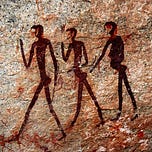








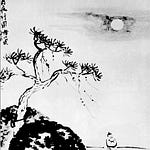
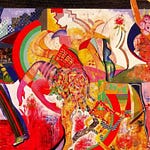
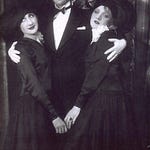

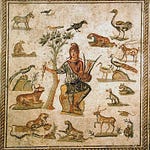


Share this post